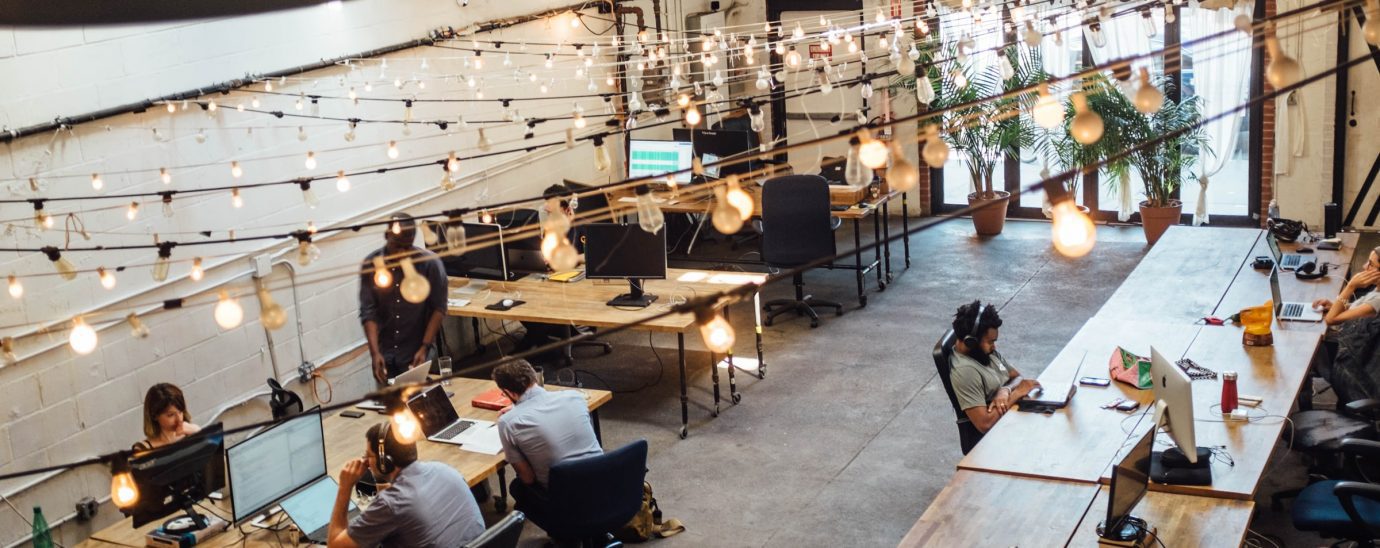Needs For Remote And Hybrid Workspaces

A survey of UK employers and employees gives insight into the lack of provision for remote and hybrid office workers to carry out their roles. While only just over half (56%) of employers admit they regularly check in with all employees to enquire about their health and well-being, and 55% provide laptops, 73% of employees are ready to choose their next employer based on physical, health and well-being support and flexible technology provision.
The Future of Work survey by Ergotron, a global company designing and manufacturing ergonomic solutions to improve workspaces and interaction with technology, revealed that despite 88% of employers seeing the importance of bringing IT devices when working in different rooms, almost a quarter (23%) of employers disagreed that the provision of the right ergonomic work conditions and support in employees’ health and overall well-being would be a strong asset in talent acquisition.
This rose to 43% in organizations with 250-500 employees and 64% of HR industry respondents. However, the finance and tech sectors most appreciate the significance of these factors, with 80% of those in IT/telecoms and 75% of those in finance agreeing with the importance.
However, employers appear to have the ambition to make a success of remote working, appreciating the importance of an agile working environment. 73% think it’s important for workers to switch between sitting and standing to support their physical needs while at work (87% of businesses with 250-500 employees), and over half (52%) of workers consider it important.
Due to the need to collaborate with remote teams and work from home, the office, or other locations, the flexibility of technology and portability of devices have become critical. 77% of employees and 88% of employers agreed on the importance of being able to bring their IT devices with them when working in different rooms. Yet only 55% of employers claim they are supplying a laptop to workers for home, office or third space.
The survey results showed a clear disparity in terms of equipment employees deem essential and what employers provide. Despite 89% of workers and 89% of employers citing a laptop as important, only 65% of all employees claim to have been provided one, and 55% of employers admit to providing one. 75% of workers and 81% of employers concurred on the importance of an ergonomic chair.
Yet again, only 19% of workers claimed employers had supplied them with one. With an increasing amount of technology applications required for typical work roles, 65% of employers said it’s important to have a large screen monitor (between 30 – 49 inches), but less than a third (28%) of employees have been supplied one, and 30% of employers admitted they had provided one. 15% of workers claimed employers had not provided any equipment – including a laptop, ergonomic chair, large monitor, or a subsidy for equipment.
While 30% of employers claim to offer a subsidy to workers to buy their own equipment, only 17% of employees claim they have been offered this. Richard Guy, Country Sales Manager UK & Ireland at Ergotron, said: “We’re now in the third year of a new workstyle for most organizations, and business leaders should by now have assessed their workspaces and at least be in planning to deliver for workers’ needs – their organization’s biggest asset.
The importance of the need for adaptable workstyles has grown hugely to build safe, healthy, productive, and collaborative working environments – and workers’ needs sit well above what their employers are currently providing. Most alarming is the lack of attention to workers’ comfort and well-being while at work. In addressing this and other dedicated resources for a remote or hybrid workstyle, employers will provide supportive working environments which attract and retain staff, which is the making of a business.
Given the business need for digital agility, deferring remote working provision will hold organizations back regardless of size or sector.”
Key findings: UK employers understand the importance of remote working requirements… 73% of employers consider it important to be able to switch between sitting and standing while working (87% of businesses with 250-500 employees) 71% of employers say it’s important for workers to be able to easily switch rooms/space to work in while taking their IT equipment with them 89% cited a laptop as important and 65% a large screen monitor 81% of employers agreed that an ergonomic chair is important …but fail to provide them.
Only 56% of employers admit they regularly check in with all employees to enquire about their health and well-being Only 55% of employers admit they are providing a laptop and 30% provide a large screen monitor 30% of employers claim to offer a subsidy to workers to buy their own equipment (only 17% of employees say they have this offer) Only 19% of employees have been provided an ergonomic chair
About the survey: Employer survey The survey was conducted of 150 respondents aged 18+ in the UK. These are senior decision-makers /employers with office workers who, before the Covid-19 outbreak, worked in their employer’s office but worked from home during a COVID-19 lockdown and will either be working between home and office or permanently from home after COVID-19 lockdowns cease.
Employee survey The survey was conducted on 150 respondents aged 18+ in the UK. Respondents were office workers who, before Covid-19, were in their employer’s office but worked from home during Covid lockdowns and will work from home and office or permanently from home since the lockdowns. Responses were sub-categorized by age across five age categories: 18-24, 25-34, 35-44, 45-54 and 55+.
